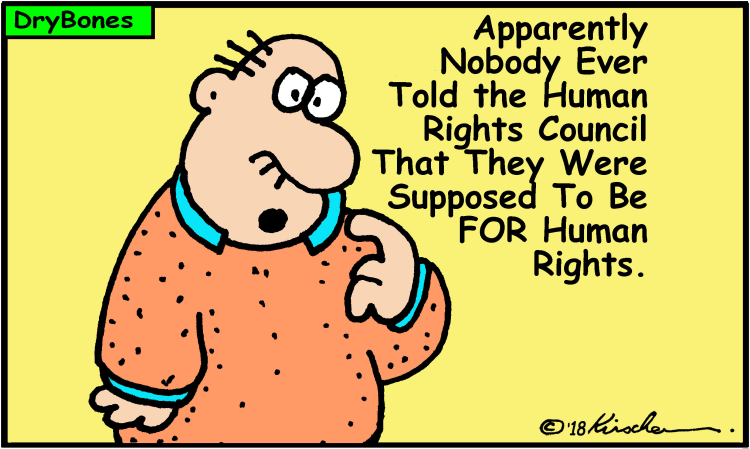Columbia professor : Israel 'fabricated' Jewish refugees
To mark the 30 November Day of Commemoration of the exodus of Jewish refugees from Arab countries and Iran, Gilad Erdan, Israel's UN ambassador, pledged to press for a UN resolution for the recognition and compensation of Jewish refugees.Melanie Phillips: The "antisemitism" of John le Carré
Enter Joseph Massad into the fray to call out 'Israel's outrageous fabrications'. Massad is Associate Professor of Arab Politics at Columbia University. Erdan's campaign, he alleges in Middle East Eye, is designed to exonerate Israel from the 'original sin' of expelling the Palestinians and other 'criminal actions'.
Dismissing all the ''push' factors, he argues that Jews coming to the Jewish homeland cannot possibly be refugees. They can't be said to have been expelled either, because Yemen defied an Arab League ban and 'allowed' the Jews to leave. Israel 'removed' 'Arab Jews', as he calls them, to face institutionalised Ashkenazi discrimination in Israel' and the abduction of hundreds of children'. Massad obviously knows better than three Israeli Commissions of Inquiry, who could find no evidence of an abduction racket.
Ignoring the mass violence and state-sanctioned persecution confronting 'Arab Jews', Massad resurrects the old chestnuts favoured by Palestinian propagandists of the 1950 'Mossad' bombs in Iraq and the 1954 Lavon Affair bombings in Egypt to infer that Jews had to be made to leave 'the paradise 'of Arab countries by the Zionists. Then comes a curious inference : because most Jews in Egypt did not have Egyptian nationality, one could not blame Egypt for expelling them as foreigners. In other words, Jews in Egypt were a mini-settler colony. It does not cross Massad's mind that Jews in Egypt could have been denied Egyptian nationality by racist laws. Of 1,000 Jews detained by Nasser after the Suez crisis of 1956, only half were of Egyptian nationality. (A negligible number, so that's alright then.)
Calling mainly on sources such as Tom Segev's The First Israelis, articles in Haaretz, Joel Beinin's The dispersion of tEgyptian Jewry and writings by Ella Shohat, Massad passes over massive evidence that Jews were stripped of their rights as Jews . He claims that there was no population swap between Jewish refugees and Palestinians, as Israel argues : while Jews were given Palestinian homes and land, Palestinians were not given Jewish property in return (Not true: some Palestinians in Lebanon, Syria and Iraq were housed in Jewish property, and it was Arab League policy neither to complete the exchange, nor resettle the refugees - ed). Massad inflates Palestinian losses to $300 bn, so that they dwarf Jewish losses.
In Britain, a number of people who eulogised le Carré after his death praised him for the moral sense they claimed illuminated his fiction. They did not mean by that his contempt for Soviet communism. They meant instead his contempt for the west.Why the cultural elite truly despises Hanukkah
For they were reflecting the cultural orthodoxy of moral relativism, the doctrine under which there can be no objective moral distinctions between behaviour.
That leads them straight into despising western culture while inflating the moral worth of the developing world. And this loss of moral compass leads them, in turn, straight into the detestation of Israel — the new antisemitism that is a fig leaf for the older kind.
Le Carré was clearly very upset at being accused of antisemitism. That’s a reaction shared by many in progressive, Israel-bashing circles.
Such people often valorise the victims of the Holocaust, sentimentalise certain Jewish characteristics and boast of having Jewish friends. They therefore dismiss as outrageous the suggestion that they may harbour some form of anti-Jewish prejudice.
But antisemitism doesn’t always wear jackboots. Like le Carré’s spies, it hides behind multiple disguises, including western liberalism.
John le Carré was a wonderful writer whose works gave pleasure to millions. His early spy fiction was superlative, and his semi-autobiographical novel A Perfect Spy was a masterpiece.
English literature, however, is full of writers of enduring quality and importance but who had antisemitic views. From Chaucer to Dickens to TS Eliot to Roald Dahl, we continue to read and appreciate writers of genius while being uncomfortably aware of their anti-Jewish prejudice.
This doesn’t just tell us something about these authors, but also about the culture that produced them. Le Carré was the product of an era in which rampant antisemitism has been facilitated by precisely the same moral bankruptcy posing as conscience that is reflected in his fiction.
Ultimately, though, he himself remains an enigma. Was he on the side of the Jewish people — or their enemies? Even George Smiley might fail to resolve that one.
Our cultural elites’ least favorite Jewish holiday has arrived: Hanukkah, of course.
Why did Hanukkah irk everyone from the late Christopher Hitchens, who memorably derided it as a “celebration of tribal Jewish backwardness,” to author Sarah Prager, who took to the pages of The New York Times recently to explain that she won’t be teaching her kids about it?
Well, because Hanukkah is about as out of step with the contemporary elite consensus as any religious tradition can be.
If you haven’t reviewed the story in a while, here’s how it goes. One fine day in 167 BC, a crowd of Jews was gathered in the town square of Modi’in, a suburb of Jerusalem.
They were there because the Seleucid Empire — the successors of Alexander the Great’s expansive dynasty — had recently moved into town. The conquerors believed that their Greek culture was the only path to enlightenment. The Seleucids had resolved to Hellenize this peculiarly stubborn people, the Jews, and they sought out the right kind of Jewish collaborator — you know, those who weren’t too bearded or too weird — to persuade the rest of the locals to abandon their backward mountain God and primitive laws.
And then, just as one of those Hellenizing Jews stepped up to sacrifice to almighty Zeus, out came a priest named Mattathias. Having precisely zero patience for idolatry, the fiery-eyed zealot killed not only the Jewish collaborator but the Seleucid governor, as well. Mattathias thus launched a war — partly an internal Jewish conflict, partly a rebellion against Greek imperial power — that would end with that well-publicized victory of the priest and his sons, the Maccabees, aided by one miraculous vat of oil.
So what’s Hanukkah truly about?















 Tel Aviv, December 17 - Observers expecting something original out of the ongoing Israeli political morass voiced their disapproval this week over yet another predictable twist in the narrative, noting that talk of an eleventh-hour deal to thwart early elections could be spotted months away in the story arc, and that the writers have rested on their laurels of late, relying on hackneyed devices instead of genuine creativity.
Tel Aviv, December 17 - Observers expecting something original out of the ongoing Israeli political morass voiced their disapproval this week over yet another predictable twist in the narrative, noting that talk of an eleventh-hour deal to thwart early elections could be spotted months away in the story arc, and that the writers have rested on their laurels of late, relying on hackneyed devices instead of genuine creativity.





















.jpg)





